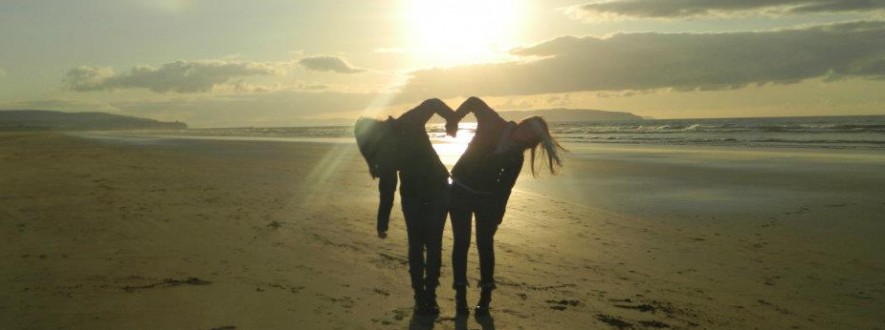Human. Physical matter. Marching on. No matter the wear and tear, the breaks and bruises, we are all still here. We do not disintegrate, we do not evaporate. Neither unmerited torture nor self-inflicted wounds can lead to our disappearance. We cannot remove our tracks. We cannot erase our words. The things we’ve done will always be the things we’ve done. Removing ourselves from one part of life cannot remove us from every part of life. So we march on. We make friends and art and mistakes. We sound, we hear, we mull. But we do not vanish. People join us, people abandon us. We welcome, we push. We can be plenty and we can be one.
And we march on.

It’s both both promising and unsettling to think that our choices (and the choices of those around us) are all added together to make us the people we are. It can feel like a “clean slate” is unobtainable. But maybe it isn’t, or maybe starting over is not the goal anyway. Maybe we are made beautiful through our mistakes and suffering. And maybe our Creator has something grander in mind: not necessarily a perfect and polished version of ourselves to eventually realize, but a work of art that only a perfect God could envision and appreciate and love. My boy C. S. says it better (obviously):
“We are, not metaphorically but in very truth, a Divine work of art, something that God is making, and therefore something with which He will not be satisfied until it has a certain character. Here again we come up against what I have called the “intolerable compliment.” Over a sketch made idly to amuse a child, an artist may not take much trouble: he may be content to let it go even though it is not exactly as he meant it to be. But over the great picture of his life—the work which he loves, though in a different fashion, as intensely as a man loves a woman or a mother a child—he will take endless trouble—and would doubtless, thereby give endless trouble to the picture if it were sentient. One can imagine a sentient picture, after being rubbed and scraped and re-commenced for the tenth time, wishing that it were only a thumb-nail sketch whose making was over in a minute. In the same way, it is natural for us to wish that God had designed for us a less glorious and less arduous destiny; but then we are wishing not for more love but for less.”
― C.S. Lewis, The Problem of Pain